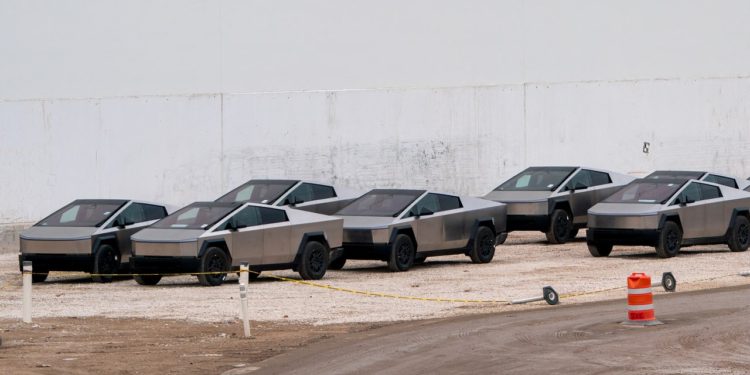By WIRED
Tesla says it uses proprietary stainless steel (possibly from Outokumpu of Finland, Europe’s largest producer, which runs a plant in Calvert, Alabama). However, even proprietary stainless steels can stain, especially if any cheaper steel fittings beneath the Cybertruck’s panels react with the stainless product.
There are five basic families of “stainless steel”: austenitic, ferritic, martensitic, duplex, and precipitation hardened. Some containing chromium among other constituents, such as nickel and molybdenum, are more corrosion-resistant than others, forming an impervious and protective molecular-scale surface barrier of chromium oxide.
Stainless steel discoloration usually takes the form of small, dark brown pits on the steel’s surface. Exposure to sea salt and high temperatures can be one cause of such pitting. Some parts of California, a hot state with a 1,264-mile coastline, might, therefore, be worse than others for causing the orange flecks reported by Raxar and others.
Once the chromium oxide barrier is breached, corrosion takes hold. And caveat emptor, because Tesla’s owner’s manual advises promptly removing corrosive substances, emphasizing not to wait until the Cybertruck is scheduled for a “complete wash,” whatever that is.
The documentation says: “To prevent damage to the exterior, immediately remove corrosive substances (such as grease, oil, bird droppings, tree resin, dead insects, tar spots, road salt, industrial fallout, etc.). Do not wait until Cybertruck is due for a complete wash. If necessary use denatured alcohol to remove tar spots and stubborn grease stains, then immediately wash the area with water and a mild, non-detergent soap to remove the alcohol.”
Pigeon poo is a well-known corrosive agent—guano is no friend to the fastidious car owner—but tree sap and bugs? Maybe that $5,000 Cybertruck wrap should ship as standard.
Other care instructions—highlighted in this YouTube video at 23 minutes in—reveal how delicately Cybertruck owners need to treat their stainless steel electric SUVs. The washing stipulations alone include, somewhat amazingly, “Do not wash in direct sunlight,” “Some cleaners and car shampoos contain chemicals that can cause damage or discoloration,” and even “Do not use hot water.”
Tesla was asked to comment on this story but did not respond.






Discussion about this post